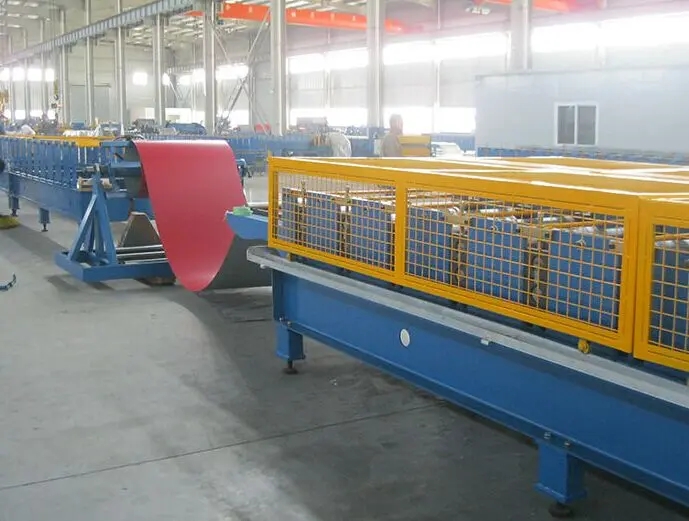
Understanding the Drywall Roll Forming Machine An Essential Tool in Construction
In the modern construction industry, efficiency and precision are paramount. One of the significant innovations that have enhanced these aspects is the drywall roll forming machine. This advanced piece of equipment has revolutionized the way drywall components are produced, enabling builders to streamline their operations and reduce costs.
At its core, a drywall roll forming machine is designed to create various types of wall framing from steel coils. These machines take flat steel strips, pass them through a series of rollers, and gradually shape them into specific profiles necessary for drywall installation. The roll forming process is highly efficient, allowing manufacturers to produce consistent and accurate components with minimal waste.
The Benefits of Using a Drywall Roll Forming Machine
1. Increased Efficiency The automated nature of roll forming machines significantly speeds up the production process. Traditional methods of framing required manual labor, which was not only time-consuming but also prone to human error. With a drywall roll forming machine, multiple profiles can be produced in a short period, thereby accelerating project timelines.
2. Cost-Effectiveness By employing a drywall roll forming machine, manufacturers can lower production costs. The efficiency of the machine means that less labor is required, and the reduction in waste materials translates to further savings. Additionally, the ability to produce high volumes of framing efficiently reduces overall operational costs.
3. Consistency and Quality Producing drywall components with a roll forming machine ensures a high level of consistency. Each piece produced is uniform, which is crucial for installation. Any discrepancies in size or shape can lead to complications during construction, ultimately affecting the final product's quality. The precise engineering of these machines minimizes such risks, resulting in a superior finished frame.
4. Versatility Drywall roll forming machines are highly versatile. They can produce a variety of profiles, including standard wall studs, tracks, and other structural components. This flexibility makes them suitable for a wide range of construction projects, from residential buildings to commercial complexes.
5. Ease of Operation Modern drywall roll forming machines are designed with user-friendly interfaces, allowing operators to control the machine with ease. Automated features and digital controls guide the production process, making it accessible even for those who may not have extensive technical training.

The Process of Roll Forming Drywall Components
The process begins with feeding a coil of steel into the machine. The machine then unwinds the coil, feeding it through a series of rollers that shape the metal into the desired profile. The shaped components are cut to specific lengths based on project requirements. Advanced machines can also include features such as punching and notching, which further customize the components before they are sent for installation.
Once the drywall components are formed, they are often coated to provide additional protection against corrosion and other environmental factors. This step is essential, especially in areas with high humidity or where the structural integrity needs to be maintained over time.
Future Trends in Drywall Roll Forming Technology
As technology continues to advance, the drywall roll forming machine itself is evolving. Innovations such as integrated software solutions for real-time monitoring and quality control are becoming more prevalent. These developments not only enhance the efficiency of production but also ensure that products meet strict industry standards.
Additionally, there is a growing focus on sustainability within the construction sector. New machines are being designed to minimize energy consumption and reduce scrap waste, aligning with the environmental goals of modern building practices.
Conclusion
The drywall roll forming machine is an essential advancement in the construction industry. With its ability to produce high-quality, consistent components quickly and efficiently, it supports not only the builders and manufacturers but also contributes to the overall effectiveness of construction projects. As technology continues to innovate and improve, the capabilities of drywall roll forming machines will undoubtedly expand, making them an indispensable tool for the future of construction.